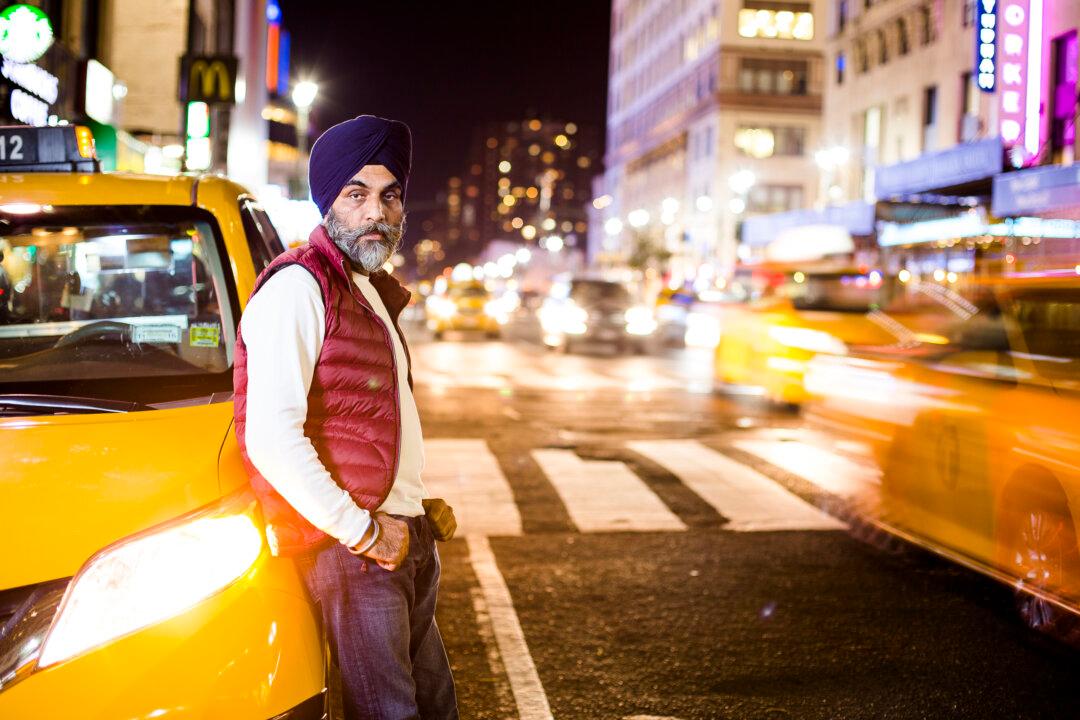NEW YORK—The night was teeming with city noises: the intermittent blasts of hip-hop from passing cars, the jubilant howls of young drunkards. But it was dim and quiet inside Jaswinder Singh’s taxi, save for the sound of his children talking to him through FaceTime. Although they live in the same house in Long Island, he hasn’t seen his children in three days.
Seven days a week, Singh drives his yellow taxi from 2:30 in the afternoon until past 11 at night. By the time he gets home from the city, it is 2 a.m. Sometimes he doesn’t make it home until 5 in the morning. His seamed face and gray beard make him look older than his 45 years.
When Singh wakes up his three children are often already at school. His wife hands him his lunch bag, stuffed with painkillers and a vegan meal, and off he goes again.
To stave off loneliness, Singh steals family moments during bathroom breaks or as he waits for passengers at John F. Kennedy International Airport.
As fine needles of rain scattered from a black sky during one recent respite, he texted his wife. She responded with a photo of their 6-year-old son modeling new shoes.
“So nice. So cuteeeee,” Singh wrote back to her.
Singh used to not mind the long hours of solitude. For the last 12 years, his driving had served as a worthy means to a middle-class life: He went from being a bankrupt man in Punjab, India, to becoming someone who owns a house in Long Island. His children attend school in a good neighborhood.
But of late, his efforts feel fruitless.
Ever since his driver left him for Uber 13 months ago, Singh has been pushing the boundaries of his body to save his family’s future.
Despite working seven days a week and sleeping an average of four hours a night, he is three months behind on his medallion mortgage payments. The bank can repossess his medallion at any time.
“Losing the medallion is not so bad,” he said. “The problem is losing the house.” Singh, like many medallion owners, had borrowed against his medallion to help pay for his home.
There are roughly 3,500 individual medallion owners like Singh in New York City. According to Javaid Tariq, co-founder of the New York City Taxi Workers Alliance, these medallion owners are on the verge of losing their taxis and possibly their homes.
As the taxi industry staggers to compete with Uber and other app-based ride-hailing companies, much has been written about the setbacks of Medallion Financial Corp. (which provides medallion loans) and fleet owners (those who own several medallions and lease them out in taxi garages).
But few have examined the lives of individual medallion owners like Singh, and how Uber has made the American dream more accessible for some while putting it out of reach for others.





